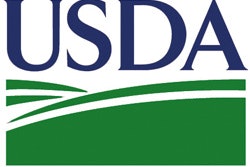OLYMPIA, Wash. (AP) -- A Grant County dairy cow sent to slaughter earlier this month is suspected of having had bovine tuberculosis, Washington state agriculture officials said Thursday.
That ailment has not been seen in Washington cattle since 1988.
There is no immediate human health concern, state health officials said.
The meat was isolated after a federal food safety inspector spotted a suspicious lesion and sent a sample for testing, state Agriculture Department spokesman Hector Castro said.
The National Veterinary Services Laboratory in Iowa reported Wednesday that the sample was consistent with bovine TB. Castro said an additional test is being done to confirm the diagnosis, with results expected in six weeks. The meat was destroyed.
Milk produced by the dairy was intended for pasteurization, which kills bacteria, including bovine TB, Castro said. The dairy was not identified.
The cow was sent Jan. 8 to a Cowlitz County slaughter facility.
"Our inspectors will work with our federal, state and agricultural partners to trace this to its source and determine whether any other cows were infected," Dan Newhouse, state Agriculture Department director, said in a statement.
The state Agriculture Department has blocked the dairy from moving any cows and directed that all milk it produces be pasteurized.
Bovine TB is a contagious bacterial disease that can cause severe coughing, fatigue and emaciation. Cows can become infected from other cows and in some cases after contact with wildlife carrying the disease, Castro said.
In certain conditions, bovine tuberculosis can be transmitted to humans, the U.S. Agriculture Department says.
The most serious health risk to people would be to those drinking raw milk from an infected cow, Castro said. A person working with an infected herd also could fall ill, he added.
"There's never been an incident of a transmission of TB from eating meat that is federally inspected," Castro said.





















